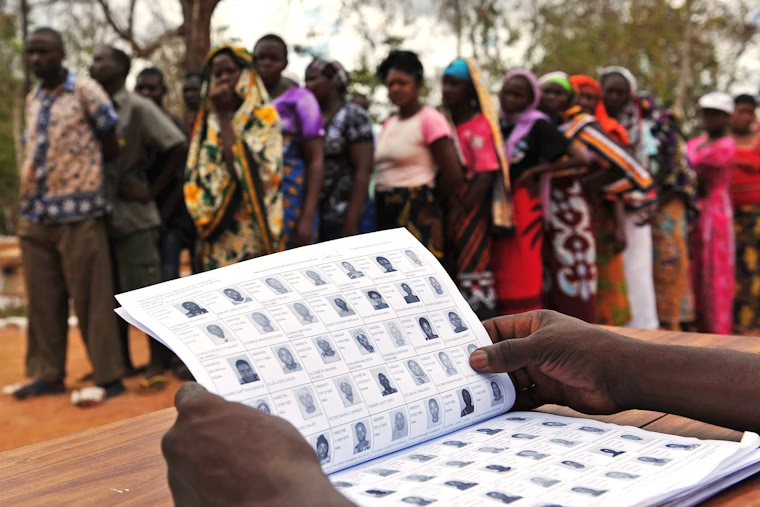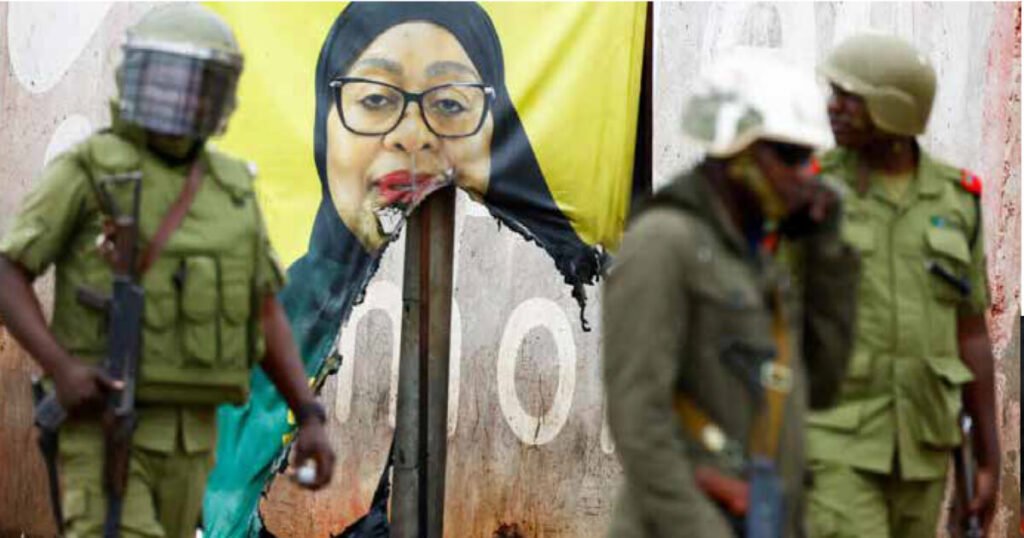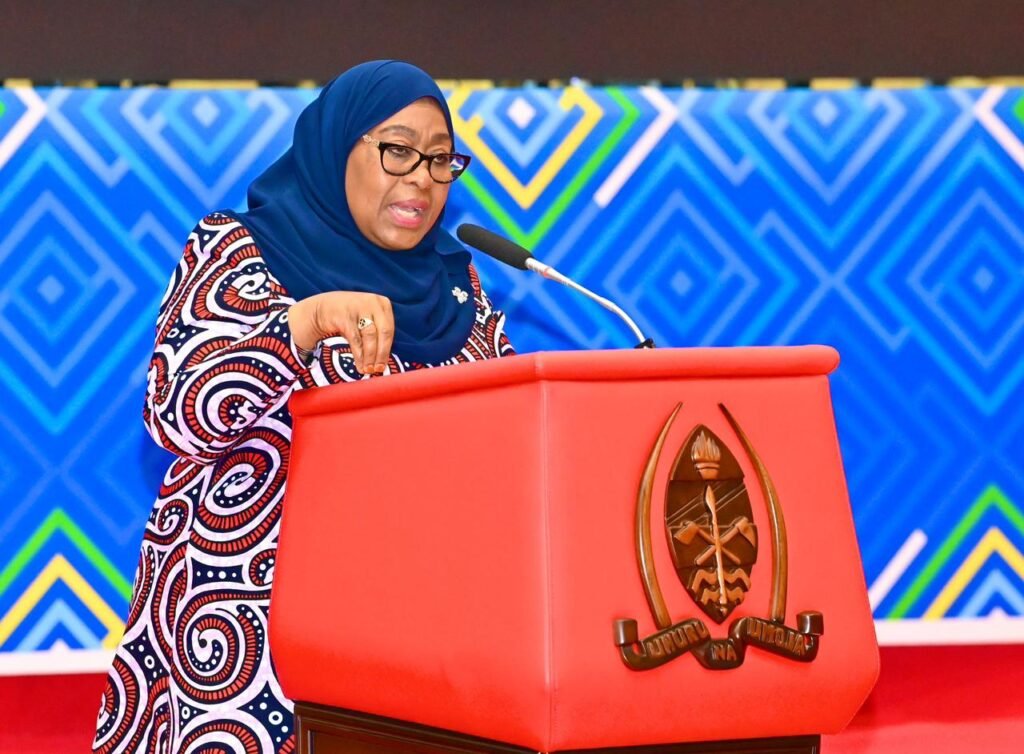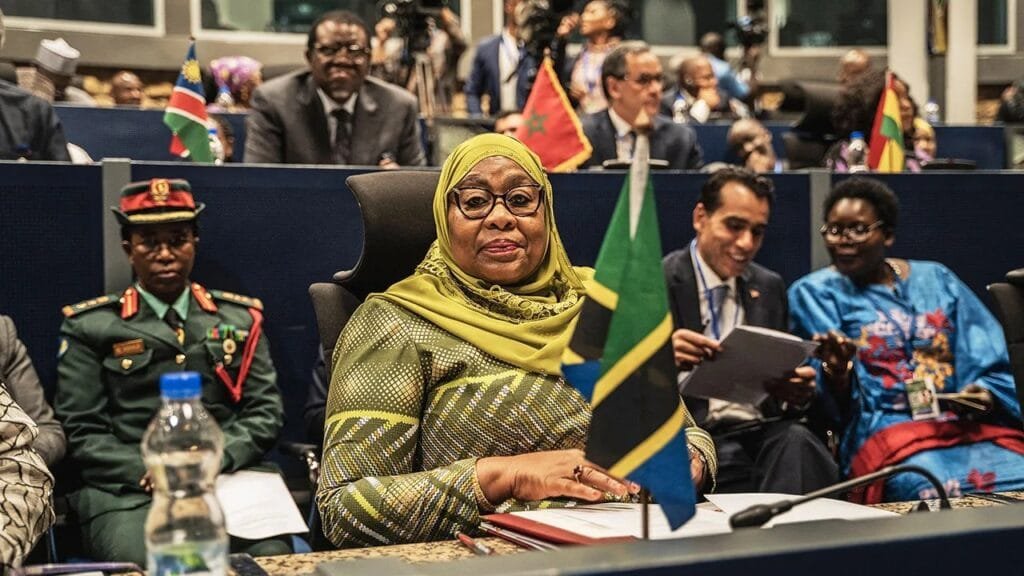As Tanzania inches closer to its general elections on October 28, 2025, the promise of democratic renewal has been eclipsed by a creeping authoritarianism. The pre-election atmosphere is not marked by robust debates or vibrant political competition, but by a chilling clampdown on dissent, suppression of opposition voices, and a deepening disillusionment among ordinary citizens.
The countdown to what should be a moment of national decision-making instead resembles a descent into a managed, restrictive political theater— where freedom, fairness, and the future of democratic governance hang in the balance.
On April 12, 2025, the Independent National Electoral Commission (NEC) of Tanzania dropped a bombshell: the country’s main opposition party, Chama cha Demokrasia na Maendeleo (CHADEMA), would not be allowed to participate in the upcoming general elections—or any by-elections—until 2030. The official justification was the party’s refusal to sign a mandatory electoral code of conduct. However, CHADEMA’s boycott was a deliberate act of protest, grounded in their long-standing call for electoral reforms.
Their mantra, “No Reforms, No Elections,” captured their refusal to validate a system they argue is fundamentally rigged in favor of the ruling Chama Cha Mapinduzi (CCM) party. Matters escalated dramatically when CHADEMA leader and former Presidential candidate Tundu Lissu was arrested on charges of treason and spreading false information online. The government accused him of inciting unrest— an allegation critics view as a pretext to silence a powerful opposition voice.
This disqualification effectively removes the most credible electoral challenger to CCM, signaling a broader strategy to consolidate power by shrinking the democratic space and removing the semblance of legitimate competition.
Regional Solidarity Meets State Repression
Lissu’s arrest triggered a wave of solidarity across East Africa. On May 19, 2025—the day he appeared in court— regional figures including Kenya’s Martha Karua and former Chief Justice Willy Mutunga attempted to observe the trial in a show of support and scrutiny. Instead of welcoming these observers, Tanzanian authorities detained and deported them. Human rights activists Agather Atuhaire from Uganda and Boniface Mwangi from Kenya were also detained in Dar es Salaam.
President Samia Suluhu Hassan, in a nationally televised address, doubled down, warning foreign actors against “interfering in our internal affairs.” The message was clear: international oversight, even in the name of human rights, would not be tolerated.
Such hostility to international legal norms and democratic oversight casts a long shadow over the upcoming elections. It suggests not only the criminalization of domestic dissent but also the rejection of transnational solidarity— cutting Tanzania off from democratic accountability mechanisms that have, in the past, helped shield rights defenders from the full weight of state power.
Crushing Dissent and Gagging the Press
The repression is not limited to political figures. Civil liberties in Tanzania have come under siege. The country’s media landscape is increasingly constrained, with key outlets like The Citizen, Mwananchi, and Mwanaspoti suspended in 2024 for publishing content critical of the president. These punitive measures are part of a larger pattern that includes arbitrary arrests, social media restrictions, abductions, and even alleged extrajudicial killings of government critics.
Under the guise of national unity and moral order, Tanzania has enacted legislation and administrative measures that curb digital freedoms. The Electronic and Postal Communications (Online Content) Regulations give the state sweeping authority to regulate online content, enabling the arbitrary shutdown of blogs and social media accounts.
In May 2025, over 80,000 digital platforms were reportedly removed, ostensibly to protect children from “unethical content”. However, observers view this as a preemptive strike against digital activism and dissent ahead of the elections. On May 20, the state blocked access to X (formerly Twitter) after unverified posts claimed the President had died— a decision linked to supposed cybersecurity threats but widely interpreted as censorship.
These actions have fundamentally eroded the country’s commitment to free expression, both offline and online.
Economic Discontent Fuels Political Disillusionment
Tanzania’s political repression unfolds against a backdrop of growing economic despair. While official narratives tout stability and progress, ordinary Tanzanians grapple with rising food and fuel prices, stagnant wages, and deteriorating public services. Strategic sectors such as port infrastructure have been handed over to foreign investors, often through opaque deals that raise more questions than they answer.
“Access to dignified work, education, or health has become a privilege,” says Muhemsi, a member of the Tanzania Socialist Forum. “Most ordinary people live in daily struggle while a few elites grow richer.”
This economic precarity is fraying the social contract. While some cling to CCM for historical reasons or in hopes of patronage, a growing section of the population feels betrayed— not only by the ruling party but also by opposition groups like CHADEMA, whose neoliberal orientation mirrors that of the government. The ideological convergence between ruling and opposition parties leaves many Tanzanians feeling that no one truly speaks for their material and social realities.
Alongside overt repression, the state employs more insidious forms of control. The government’s investment in influencers, musicians, and social media personalities aims to create a parallel reality— one where Tanzania is stable, prosperous, and united.
They aim to project an image of calm and development to the outside world, creating the impression that everything is progressing smoothly. However, beneath that surface, the reality is quite different— the vast majority of underprivileged people continue to be ignored and excluded from any meaningful progress or opportunities.
This propaganda strategy not only drowns out dissenting voices but also dilutes political discourse. With the airwaves filled with government-endorsed messages and pro-regime narratives, critical perspectives are pushed to the margins.
Resistance Persists
Despite the repression, Tanzanians are not silent. Across the country, grassroots movements continue to organize, resist, and survive. In rural areas, land conflicts involving the Maasai communities in Ngorongoro and Loliondo have led to violent confrontations with state forces. In urban centers, street vendors persistently resist displacement and criminalization.
Some grassroots groups are building cooperative economic systems, offering alternatives to exploitative market arrangements. These efforts, though often small in scale, point to a resilience and ingenuity that could serve as the bedrock for future political transformation.
Solidarity is steadily growing among different groups— farmers, cooperatives, and land rights activists are increasingly uniting around a common understanding. There’s a shared recognition that relying on top-down political approaches will not bring about the change they seek. Instead, they believe that meaningful transformation must be driven by grassroots efforts and collective action from the ground up.
Legal Theater
The legal saga of Tundu Lissu encapsulates the broader crisis. After his arrest in April 2025, Lissu was moved from prison to prison without due process, denied access to legal counsel, and kept away from his family. His court appearances have been marked by procedural irregularities, including the refusal to bring him to court in person and the detention of other CHADEMA leaders attempting to attend his hearings.
On May 19, Lissu appeared in court wearing a shirt with his campaign slogan as supporters gathered outside in defiance. The trial was adjourned until June 2 for further investigations—a tactic critics say is meant to drag out the case, demoralize supporters, and keep Lissu from campaigning.
International human rights organizations, including ARTICLE 19, have condemned these developments, calling on the Tanzanian government to drop politically motivated charges and respect constitutional freedoms. But with the judiciary itself seen as compromised, there is little confidence that justice will prevail.
A Nation at a Crossroads
Tanzania is not merely preparing for an election— it is confronting a democratic reckoning. Will the October 2025 polls affirm the people’s will or rubber-stamp a predetermined outcome? Will civic space remain choked or breathe again under new leadership?
The signals are worrying. With the main opposition party disqualified, independent media throttled, international observers expelled, and grassroots dissent criminalized, the 2025 elections risk becoming a hollow exercise. The architecture of democracy— opposition parties, free press, independent judiciary— is being dismantled piece by piece.
Yet even in the face of authoritarian drift, history reminds us that such regimes are not immune to challenge. Change can emerge through the perseverance of civil society, the weight of international scrutiny, or internal fractures within the ruling establishment. These forces, while often slow to build, have the potential to redirect the nation’s political course. Tanzania’s future remains unwritten—and those yearning for a more open and accountable system still have a role to play in shaping it.
Democracy Dies When Dissent is Crushed
The situation in Tanzania represents a case study in democratic backsliding. A country that once inspired East Africa with its unity and post-colonial ambition now finds itself mired in repression and political decay. The silencing of CHADEMA, the persecution of Tundu Lissu, and the crackdown on digital freedoms are not isolated events— they are coordinated components of a broader authoritarian project.
But if repression is the state’s tool, then resistance— quiet or loud, organized or spontaneous— remains the people’s answer. The countdown to crisis may continue, but so too does the countdown to awakening.
As October 28 approaches, Tanzanians and the international community must not mistake silence for consent or calm for peace. The future of Tanzanian democracy hangs in the balance— and it demands our vigilant attention.









